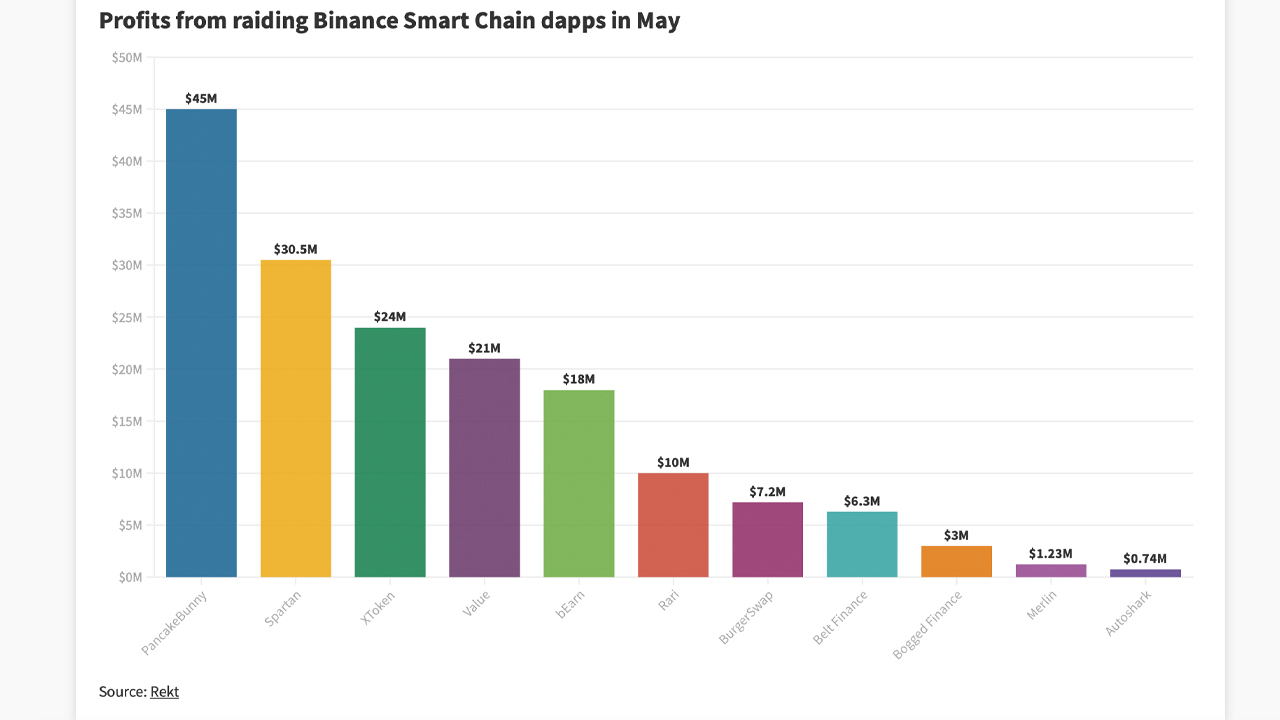
Binance Smart Chain (BSC) decentralized applications (dapps) have been hit with a number of flash loan attacks in recent weeks. According to collected data by Rekt, during the last 30 days BSC has lost a total of $167 million from these flash loan exploits.
Flash Loan Hackers Prey on Binance Smart Chain Dapps – $167 Million Siphoned in May
Flash loan attacks have become an issue for the Binance Smart Chain (BSC) as a myriad of BSC dapps were breached during the month of May. Essentially, these flash loans provide people with the ability to borrow crypto without relinquishing any collateral.
The person using the flash loan leverages the method to trigger decentralized finance (defi) apps associated with oracles to sell at the desired spot price. Sometimes the hackers leverage phony ERC20s and other malicious methods during the flash loan execution to siphon defi liquidity pools.
Bitcoin.com News has reported on numerous BSC flash loan attacks that have siphoned funds from projects like Pancakebunny, Belt Finance, Spartan, Fog Finance, and Burgerswap.

Now statistics from the publication Rekt indicate that $167 million in flash loan attacks exploited BSC dapps in May. Pancakeswap has lost a whopping $45 million while Spartan saw $30 million taken during an attack.
Pancakeswap lost a total of $200 million according to initial reports, but the BSC dapp’s team noted that the hackers only managed to snag around 114,600 BNB ($45 million).
Bearn saw $11 million in stablecoins drained and Spartan saw liquidity calculation discrepancies when $30 million was swiped from a flash loan attack. Autoshark lost the least amount of funds with only $740,000 worth of BSC-based tokens swiped.
Flash loan attacks have been a great problem for a wide variety of defi protocols. Ever since the ETH-based protocol Bzx was attacked the method has been a common practice among hackers.
While BSC is now getting an increased share of flash loan attacks, Ethereum still gets hit once in a while as well. Yearn Finance suffered a flash loan attack in February which saw $11 million siphoned from the project.
What do you think about all the flash loan attacks hitting the BSC during the last 30 days? Let us know what you think about this subject in the comments section below.
Comments
Post a Comment